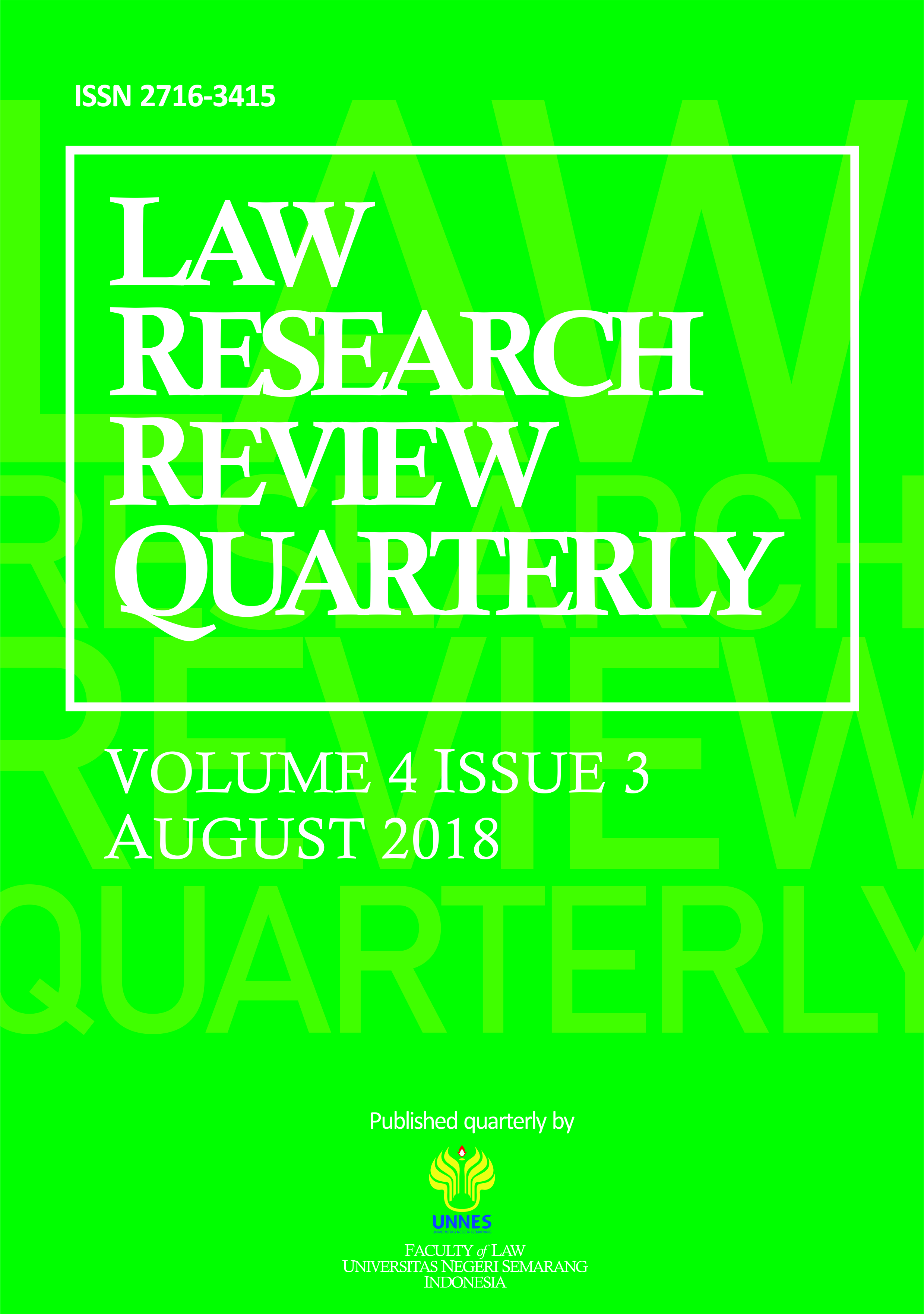Women's Participation in Political Parties and Simultaneous Elections
Main Article Content
Abstract
Women's representation on the political stage still leaves serious problems, in fact, Law Number 8 of 2012 concerning General Elections of Members of the DPR, DPD and DPRD confirms that the representation of women is at least 30 percent. One of the classic reasons that became the scapegoat of the political backwardness of women is a matter of patriarchal culture, namely women are considered more suited to take care of the domestic (private) while the male public. Political parties' alignments towards gender equality are still half-hearted. Every ahead of the election almost all political parties try to adopt a gender perspective (gender perspective). However, this intention does not appear to be truly sincere because the perspective of gender perspective only wants to maintain the existence of the party so that it is in accordance with the requirements of the Act. In fact, the representation of women is crucial given the decisions in the executive and legislative branches covering all aspects of national and state life. This study aims to show that as an important pillar of democracy, it is time for political parties to take part in the success of the agenda for women's representation. The results of this study indicate that political parties must have a real commitment to realize women's representation by being proven in writing into the party platform. Parties can use wing organizations engaged in the field of women as a source of cadres for political parties.
Article Details
All writings published in this journal are personal views of the authors and do not represent the views of this journal and the author's affiliated institutions. Author(s) are retain the copyrights of the Article. However, before publishing, it is required to obtain written confirmation from Author(s) in order to ensure the originality (Author Statement of Originality). The statement is to be signed by at least one of the authors who have obtained the assent of the co-author(s) where applicable.This work licensed under a Creative Commons Attribution-ShareAlike 4.0 International (CC BY-SA 4.0)
References
Luky Sandra Amalia, â€Marjinalisasi Perempuan Dalam Politik Pada Pemilu 2009â€, dalam Jurnal Masyarakat Indonesia Edisi Khusus, LIPI Press: 2009, hlm. 86
Isbodroini Suyanto,â€Peranan Sosialisasi Politik terhadap Partisipasi Politik Perempuanâ€, dalam Kajian Pembangunan Wanita (Jakarta: Yayasan Obor Indonesia, 1995), hlm. 489.
Napsiah. (2009). Gender and Politics. Nilai-Nilai Profetik dan Affirmative Action di Partai Politik, 171.
Nataresmi. (2014). Philips J. Vermonte: Problem Representasi Perempuan dalam Politik. Jakarta: Yayasan Jurnal Perempuan.
PerUndang-Undangan
Undang – Undang Republik Indonesia Nomor 31 Tahun 2002 tentang Partai Politik
Undang – Undang Republik Indonesia Nomor 12 Tahun 2003 tentang Pemilihan Umum
Undang – Undang Republik Indonesia Nomor 2 Tahun 2008 tentang Partai Politik
Undang – Undang Republik Indonesia Nomor 10 Tahun 2008 tentang Pemilihan Umum
